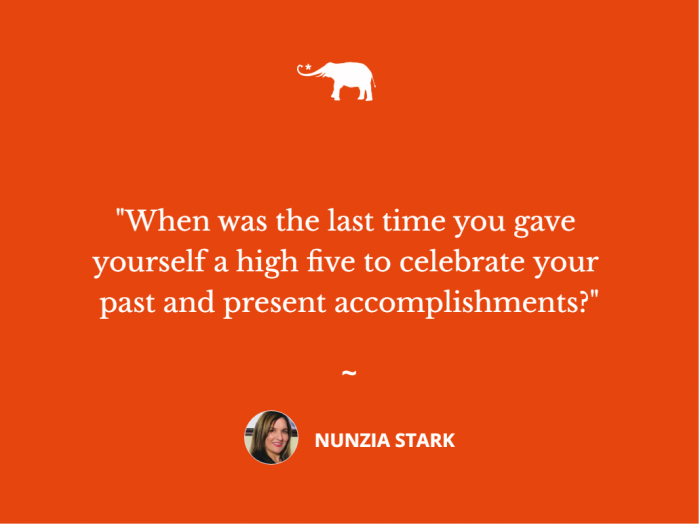Are you suffering from post-holiday blues?
Another holiday season has passed. To ensure that everyone had a great Christmas, you worked nonstop. As a result, everyone had a great time; kids and in-laws are happy—and your adrenaline levels should be back to normal again. So, it seems that you have plenty of reasons to be happy and go back to the office with a big smile on your face, right?
Unfortunately, instead of moving forward with your life and with your daily responsibilities, you feel emotionally numb and disconnected from the rest of the world. You look calm and composed at the office, but emotionally, you feel empty inside.
You often find yourself distracted with your mind wandering, looking at the shape and patterns of the dark winter clouds from your office window, and you suddenly become aware that your eternal sadness is making you feel miserable.
If you are feeling lethargic or you are having difficulties managing those impermanent and yet negative emotions, you may be suffering from post-holiday blues.
According to experts, this type of depression can be triggered by emotional and physical stress that we put on ourselves to plan that perfect Christmas. On the other hand, for others, post-holiday blues can be set off after a beautiful time in your life abruptly comes to an end.
Additionally, to make matters worse, here comes the dreaded January blues. The first month of the new year can be a dark place for those suffering from post-holiday sadness. Sometimes, we tend to hide our emotional baggage and pretend that nothing is happening. As a result, we repeat that same ingrained pattern of not acknowledging our emotions. Our subconscious mind tends to hide our thoughts and feelings, and we walk around pretending that everything is going okay. An article published in Time Magazine has stated that hiding our emotions can be detrimental to our health.
A fresh start:
When we feel down, we are ready to make changes. Interestingly, we seem to be attracted by the power of a new beginning full of hopes and dreams. So, if you’re feeling sad about taking down the Christmas tree, keep in mind that by removing the Christmas decoration from your living room, you’re allowing yourself a separation from a stressful period in your life. Then, by opening the doors to a “fresh start,” you will be able to shift your attention to things that matter in your life, such as your physical and mental health, gratitude, and happiness.
Take time to celebrate your accomplishments.
When was the last time you gave yourself a high five to celebrate your past and present accomplishments? Sometimes, instead of commemorating our achievements, we often acknowledge and compliment friends and strangers on their actions instead of our own. But somewhere along the way in this fast-paced life, where we’re constantly distracted by social media and obsessed with worrying about our own mistakes, and we seem to have forgotten to take a moment to celebrate our success.
When we take the time to celebrate, it can benefit our health—simply because our bodies naturally produce endorphins, which are responsible for reducing stress and pain, and uplifting our mood. So, why not start the new year by engaging in mood-boosting activities. Doing so will help our body go into that “endorphins rush” mode. But, in the end, always remember that you have the power to create happiness.
Practice mindfulness.
Studies have shown that mindfulness meditation helps reduce stress and improves our well-being. In addition, researchers have concluded that mindfulness may help change the brain of those patients who are depressed. Also, it can help us achieve that calming state of mind and improve our attentiveness and awareness so we can be in the moment.
Another benefit of implementing calming activities into our morning routine is that they will help slow down those racing thoughts that take over our minds, especially when we’re stressed out. Also, it is essential to modify your daily schedule to have enough dedicated time to nourish your emotional and physical health with those calming activities that will help alter your mood.
Make time to exercise.
On your journey of healing your mind, start with small and attainable goals. First, allow yourself some time to adjust as you transition into your new routine after the chaos of the festive season. As you slowly adjust to the new year’s demands, it is never too late to make time to exercise. The good news is that exercise can help individuals who are suffering from depression to ward off and alleviate their symptoms. So, instead of walking on your treadmill, go outside. Studies have concluded that walking around nature can benefit our bodies and mind. Also, if you don’t have a lot of time, only 11 minutes of exercising is enough to increase your longevity.
Don’t isolate yourself.
Don’t isolate yourself with loneliness and get too wrapped up in self-reflection and the past, whether good or sad. Instead, find ways to stay connected with others in the present—safely, with COVID-19 still a factor. Not having social interaction can be detrimental to our health. Also, a new survey led by the health insurer Cigna has stated some alarming results: 61 percent of participants have felt lonely. Of course, you can always schedule a video chat if you need to talk to someone. It will be a great way to catch up with your friends and loved ones. Studies have shown that social interaction with a loved one can benefit your health, boost your immune system, and increase longevity.
Get a good night’s sleep.
It can be a great feeling to stay up late to catch up on your favorite shows on Netflix. But scientists have discovered that getting a good night’s sleep may play a vital role in our immune function and provide other health benefits—such as improving memory and learning. Moreover, an article published on WebMD has stated that a good night’s sleep helps manage your depression. Furthermore, it will help you start your day feeling well-rested and energized.
Final thoughts:
If January has passed, and you are still experiencing symptoms of post-holiday blues, in that case, it may be time to discuss your symptoms with your family doctor or with a licensed therapist to choose an appropriate treatment for your depression.










Read 4 comments and reply